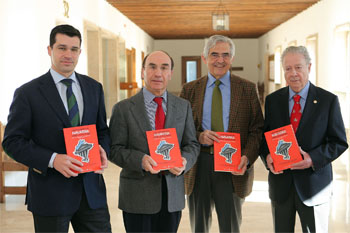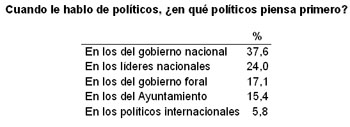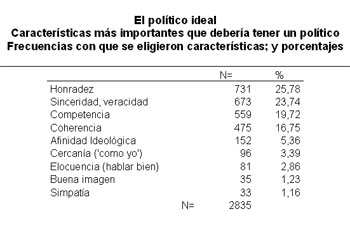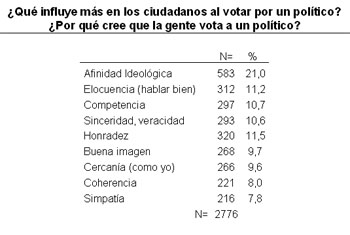El 65% de los navarros exige a los políticos una conducta más ejemplar que la de otros profesionales
65% of Navarrese people demand politicians to behave in a more exemplary manner than other professionals
Four researchers from the University of Navarra publish 'Qué pensamos en Navarra sobre los políticos', based on a survey survey of 950 citizens.

65% of Navarrese consider that politicians should be held to a higher standard of exemplary conduct than other professionals. This is the opinion of University of Navarra researchers Esteban López-Escobar, Pedro Lozano Bartolozzi, Jordi Rodríguez Virgili and Antonio Tolsá, authors of the book "Qué pensamos en Navarra sobre los políticos" (What we think in Navarra about politicians). The work is the result of a study in which 950 Navarrese citizens over 18 years of age participated.
According to Professor Esteban López-Escobar, "this publication does not intend to add fuel to the fire of a manifest social problem -the discrediting of politicians, politics and political parties-. On the contrary, it aims to contribute to improving a status that is degrading, and is based on the conviction that a good diagnosis is the first step towards a good therapy".
The study highlights that the attributes that citizens value most in public authorities, in order of relevance, are: honesty, sincerity, skill and coherence. In addition, they prefer a politician with a different professional background, prior to politics; and they value experience over youth. However," says Professor Pedro Lozano, "we have found that voting motivations are different. Ideological affinity becomes the main reason for election. Therefore, it seems that one thing is what one would like, and another what one does, or at least what one thinks one does".
The work, which takes into account a survey prepared by the authors and whose work fieldwork was commissioned to business CIES, also reflects on the influence of political information on public opinion and its responsibility in the creation of political tension.
The influence of the media on the deterioration of the reputation of politicians has raised an interesting academic and professional discussion . Some authors attribute to the media the main responsibility for the discrediting; while others deny the direct negative influence of the average. The analysis of the data in Navarra, notes Rodríguez Virgili, "allows us to conclude that the most intense use of the media is associated with less negative and more moderate perceptions of politicians, parties and politics".
66.7% affirm that politicians do not care about what citizens think.
The negative perception of politicians is manifested, for example, in the fact that 66.7% affirm that they do not care about what citizens think. Likewise, 87.2% believe that they are more interested in what the party says than in what the citizens themselves say, and 70% of those interviewed would not like their children to work in politics. The results show that, for the most part, politicians are associated with lying and its equivalents; in second place, with putting their interests first; and, in third place, with corruption.
Young people, a segment of the population whose lives have been spent entirely within the democratic system, are the most critical of the class political system and the most doubtful that the party system is necessary for democracy.
In the study, prepared by professors at the University of Navarra with the support of the regional government, 62% of those surveyed said they were referring to national politicians; 17% to those of the Autonomous Community, and 15.4% to those of the City Council. Interestingly, almost 6% said they had international politicians in mind.
The research has been initially carried out in Navarra, as a pilot test to be extended to several countries, which will allow for comparative programs of study . The questionnaire was developed after a process of meetings with press officers of public institutions and journalists covering national politics and after discussion sessions with various groups of citizens. Marita Carballo, international director of Taylor Nelson Sofres, business which makes the Eurobarometer, and professors from the universities of Munich, Indiana and Texas have cooperated in its elaboration.
The authors conclude that the perception that Navarrese people have of politicians and politics can be a useful guide for current or future politicians, and not only for national politicians but also for those of Navarre. The book proposes that image campaigns are not enough, but that an effective improvement of those engaged in political tasks is needed.
 | |
 | |
 |
Other contents of the news

